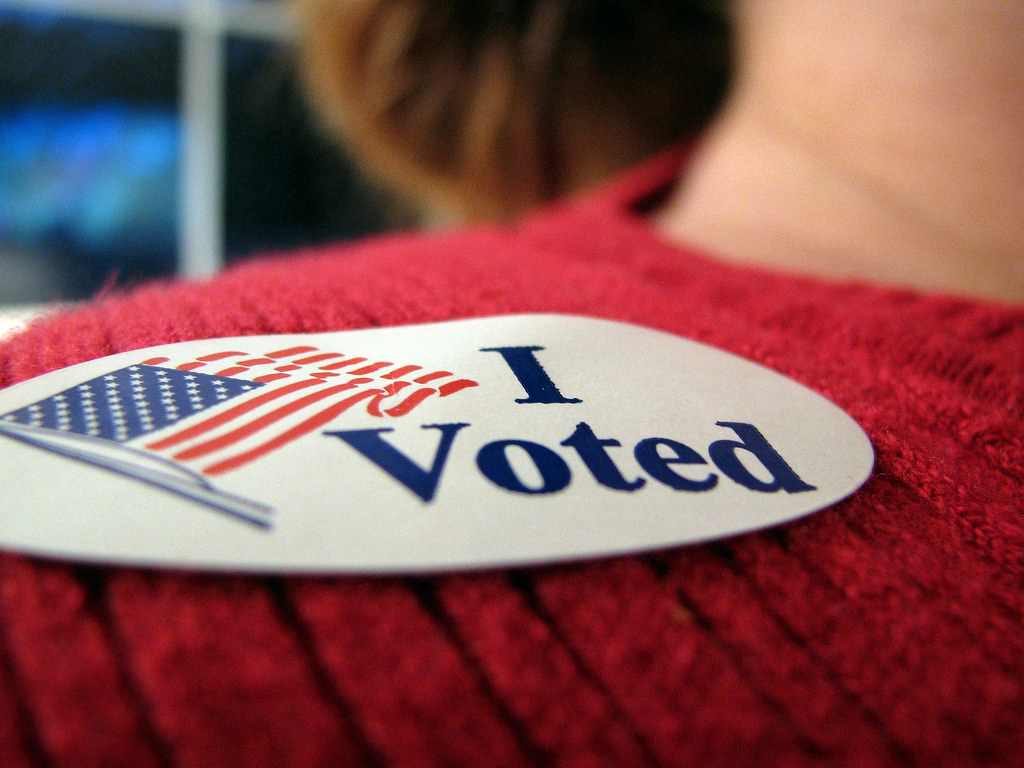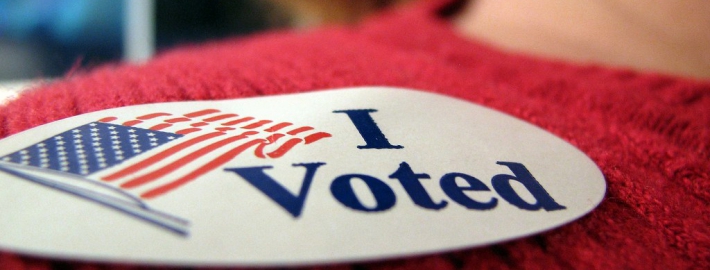USA Today harnesses UCLA political scientists’ ‘Nationscape’ data

I voted sticker. Jessica Whittle Photography/Creative Commons 2.0. (Photo Credit: Jessica Whittle Photography)
As voters in 14 states, including California, go to the polls March 3 to vote for their preferred Democratic presidential nominee, information gathered by UCLA professors Lynn Vavreck and Chris Tausanovitch will offer data-based insights about what voters care about most.
Every week, observations and analysis from their massive Nationscape voter data project will be published on USA Today. The newspaper’s first published report on this project, which is a partnership between UCLA, Washington, D.C.-based Democracy Fund and the market research firm Lucid, launched Feb 28.
“At a moment when everyone from voters to pundits is focused on who is ahead and who is most electable in November, our data about what people care about and how this varies across geography and demographic groups in the United States can hopefully inject a dose of substance in to conversations about electioneering and strategy,” Vavreck said. “We are delighted that USA TODAY wants to visualize our data for their readers in the lead up to the 2020 presidential election. With their reach, they are able to share insights from our Nationscape project with people in real time.”
Vavreck and Tausanovich have been deep in the throes of Nationscape data gathering since summer 2019, conducting about 6,250 interviews each week. By election time, they will have done 500,000 interviews asking people about policy questions and their opinions about the attributes of elected officials. The way the data is presented allows respondents to really think about what they care about most, and also consider what they are willing to give up to get it. Researchers are also tracking how those attitudes might change over time.
The USA Today story that posted Feb. 28 reveals a wealth of information on voter attitudes about gun control, immigration, middle class tax cuts, health care and more.
There are issues where attitudes overlap between Democrats and Republicans — background checks for gun ownership and middle class tax cuts — while topics like building a border wall shows a starker split based on party affiliation.
A tax cut for families who make less than $100,000 is a particularly fertile ground for commonality. According to Nationscape, 79% of Democrats agree with cutting taxes for families that make less than $100,000 per year, while 10% disagree. Among Republicans, 70% agreed, while 18% disagreed.
When it comes to Americans who are most likely to vote Democrat, the policy with the widest variance of support is Medicare for All, according to Nationscape data released last week.
For supporters of all the Democratic candidates still in play for Super Tuesday, a majority of these likely voters agree with the idea of Medicare for All, regardless of their chosen candidate. Sentiments run strongest among supporters of Bernie Sanders for whom it is a signature campaign issue, with 87% of his voters agreeing with Medicare for All. For Elizabeth Warren, 67% of her supporters agree with the policy. When it comes to Joe Biden and Mike Bloomberg, 58% and 57% of their supporters, respectively, agree with Medicare for All.




